because you cannot overcome suffering if you refuse to look at it.}
I’ve long hesitated to write anything about Hellblade because I love it dearly. We superstitiously seek to avoid tarnishing the things we cherish with words unworthy of them. However, I may as well try to articulate a little bit what makes this such a special game for me. I shall not attempt to evaluate it from the viewpoint of gameplay or mechanics, nor did I go into the experience wishing to be entertained by something not created lightly. I simply observe it as a work of art, in terms of aesthetic, emotional, and narrative efficacy.
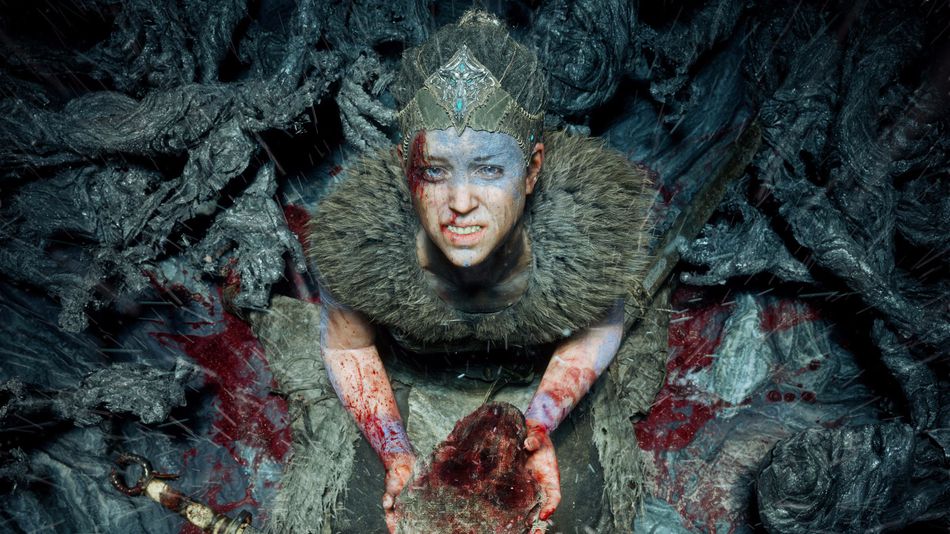
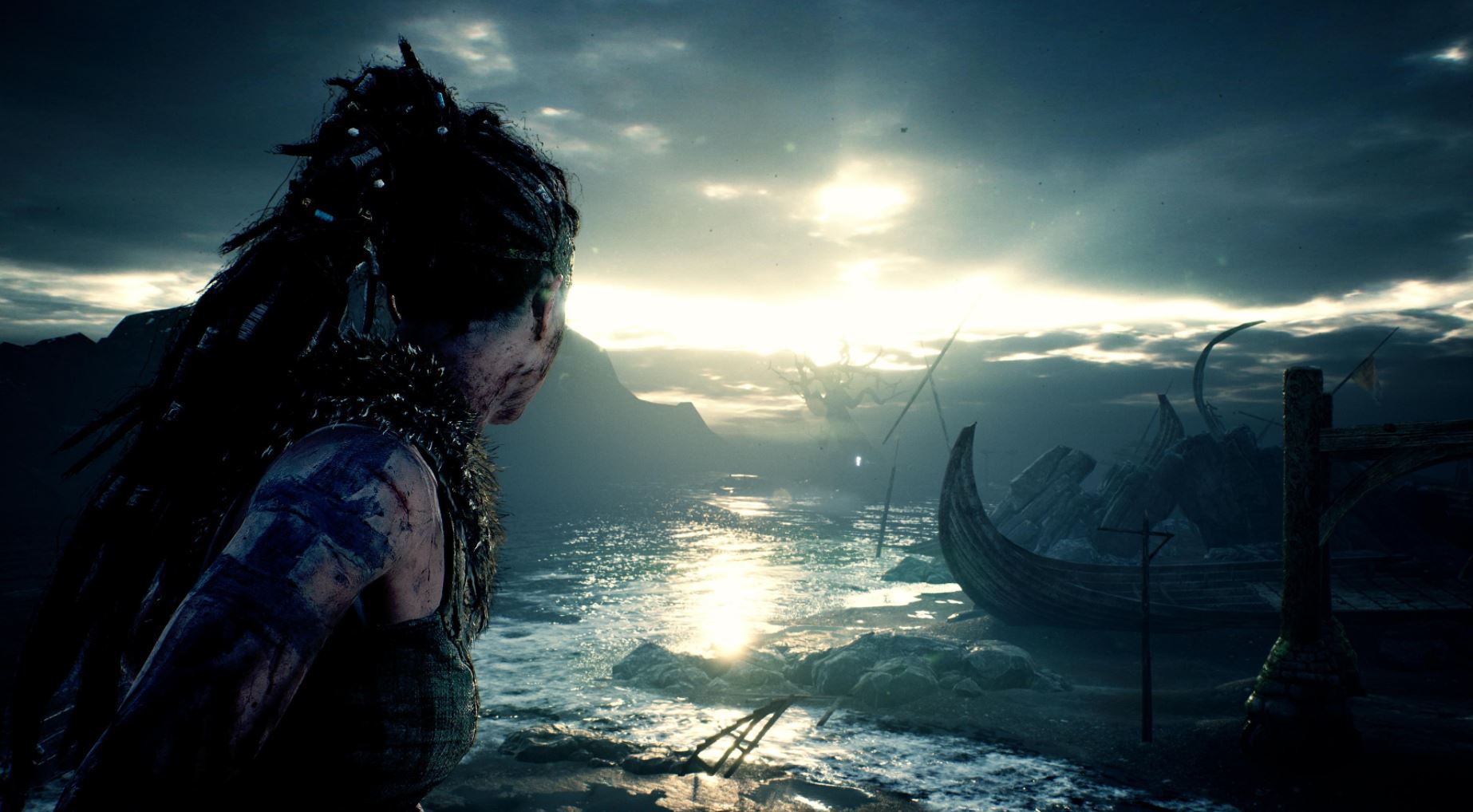
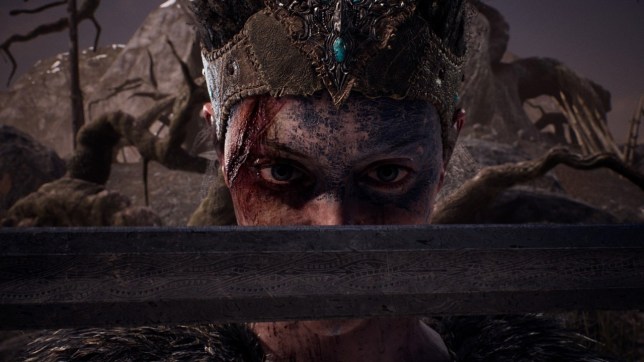
Hellblade: Senua’s Sacrifice is an astonishingly beautiful video game from Ninja Theory, first released in August 2017. The tremendously sympathetic protagonist, Senua, is an 8th-century Pict (Celtic) warrior who journeys to Helheim, the Norse underworld, in order to save the soul of her beloved fellow villager, Dillion, whom it implies was torturously murdered in the “blood eagle” ritual execution of the Vikings. Senua believes herself to be cursed, just like her mother, because she suffers from hallucinatory voices and visions. In historical context, she and everyone around her is clearly incapable of viewing her mental illness in any light other than that of a supernatural origin.
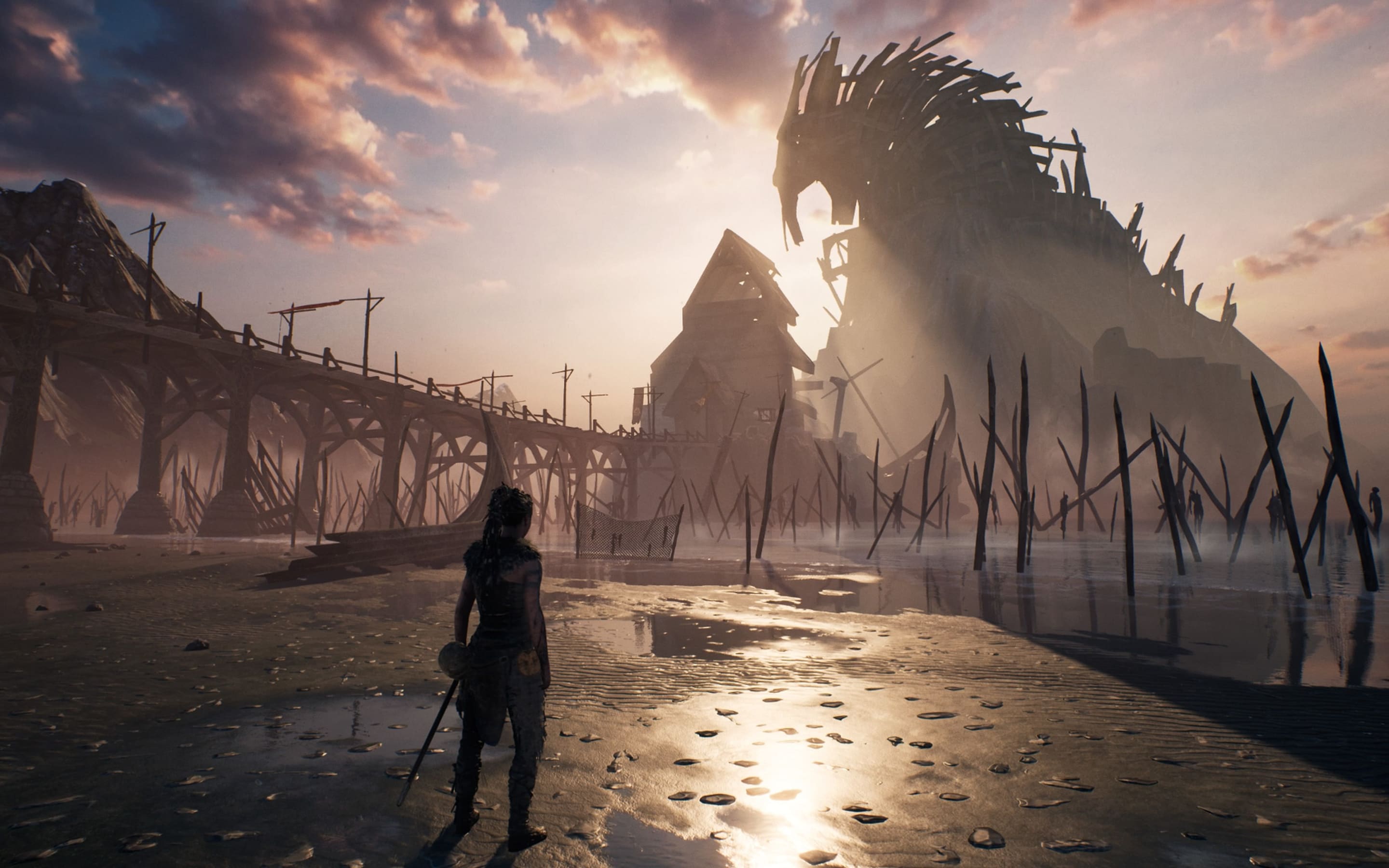
It is revealed that Senua carries her lover’s severed head with her as a means of accessing his soul once she reaches Hel. This in itself is an instance of touching naivete on her part and is darkly tragic, both macabre and heartbreaking – just as we all instinctually handle the bodies of the recently deceased with tenderness, even though the life has so clearly departed from the emptied vessel. Like children, we are unable to be entirely convinced that the beloved is separated from their lifeless, still-precious corpse. If this is true of humanity even in the 21st century, how much more so would it have been a fundament in the mind of an inhabitant of the 8th century?
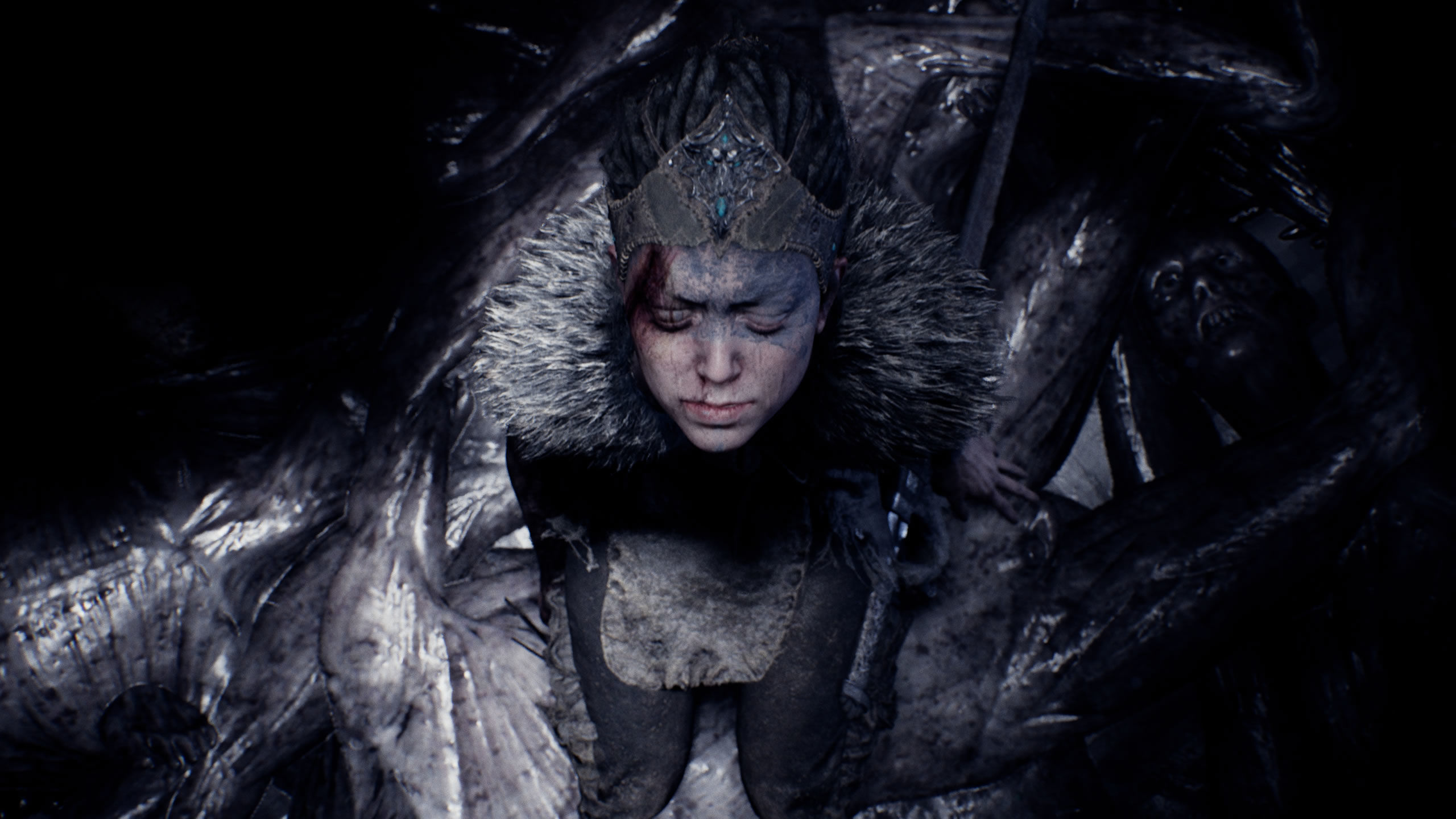
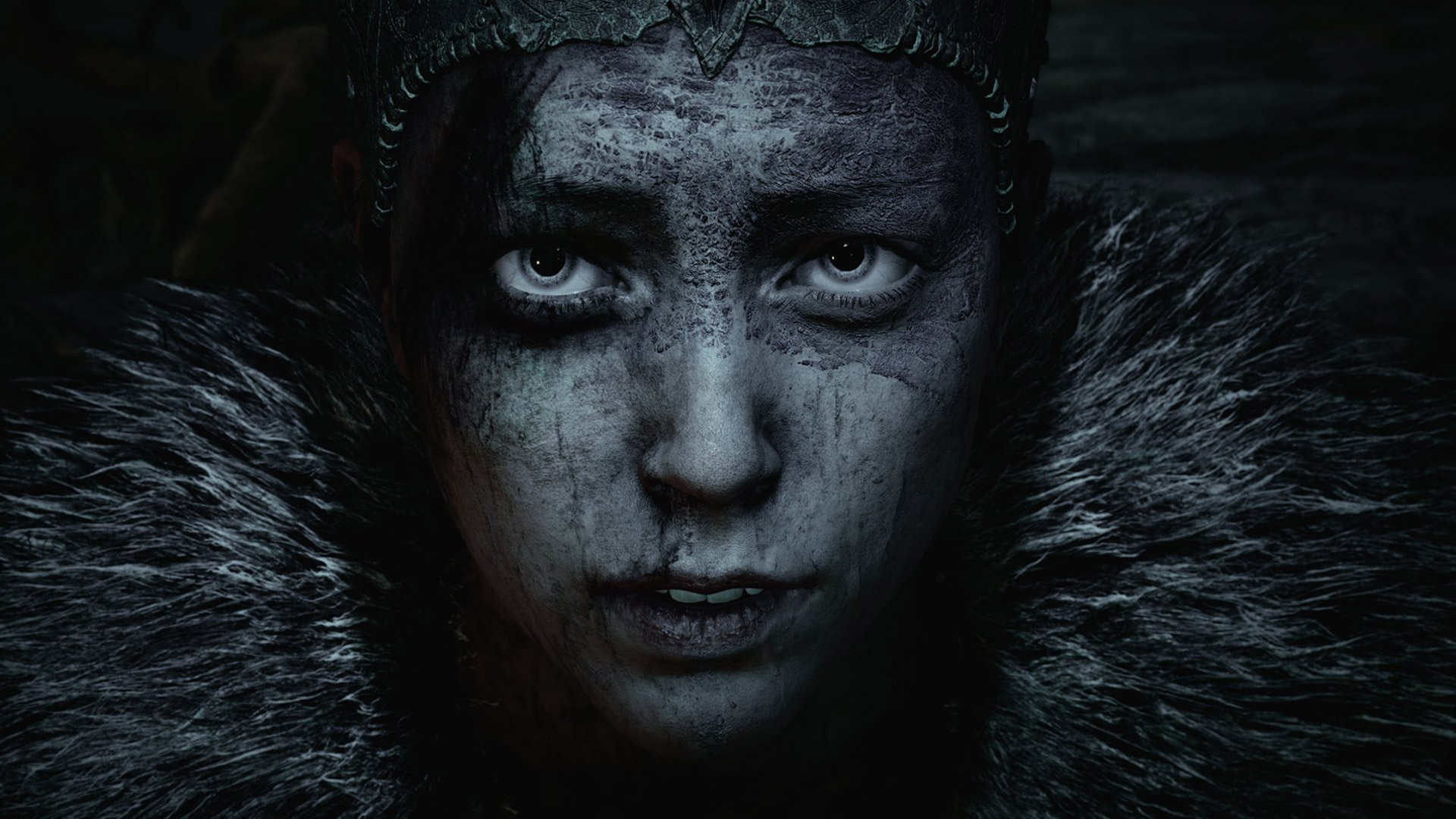
I will not detail her journey, her various battles, or delve intricately into the plot, which takes inspiration from Norse mythology and medieval Celtic culture. The monsters that appear to her are visually and conceptually interesting; so are the runes that, when she is able to align her vision or intuition correctly, illuminate her path. What her character conveys so well is the utter torment that she undergoes on her quest, and has experienced her entire life, diminished by the brightness of Dillion’s influence. She is racked by psychosis and mental illness without recourse, without therapeutic outlet, and seemingly without hope of respite. She seeks not a cure, but redemption, as she holds herself to be responsible for the deaths of many of her villagers. She believes that her curse destroys all those who fall beneath its shadow.
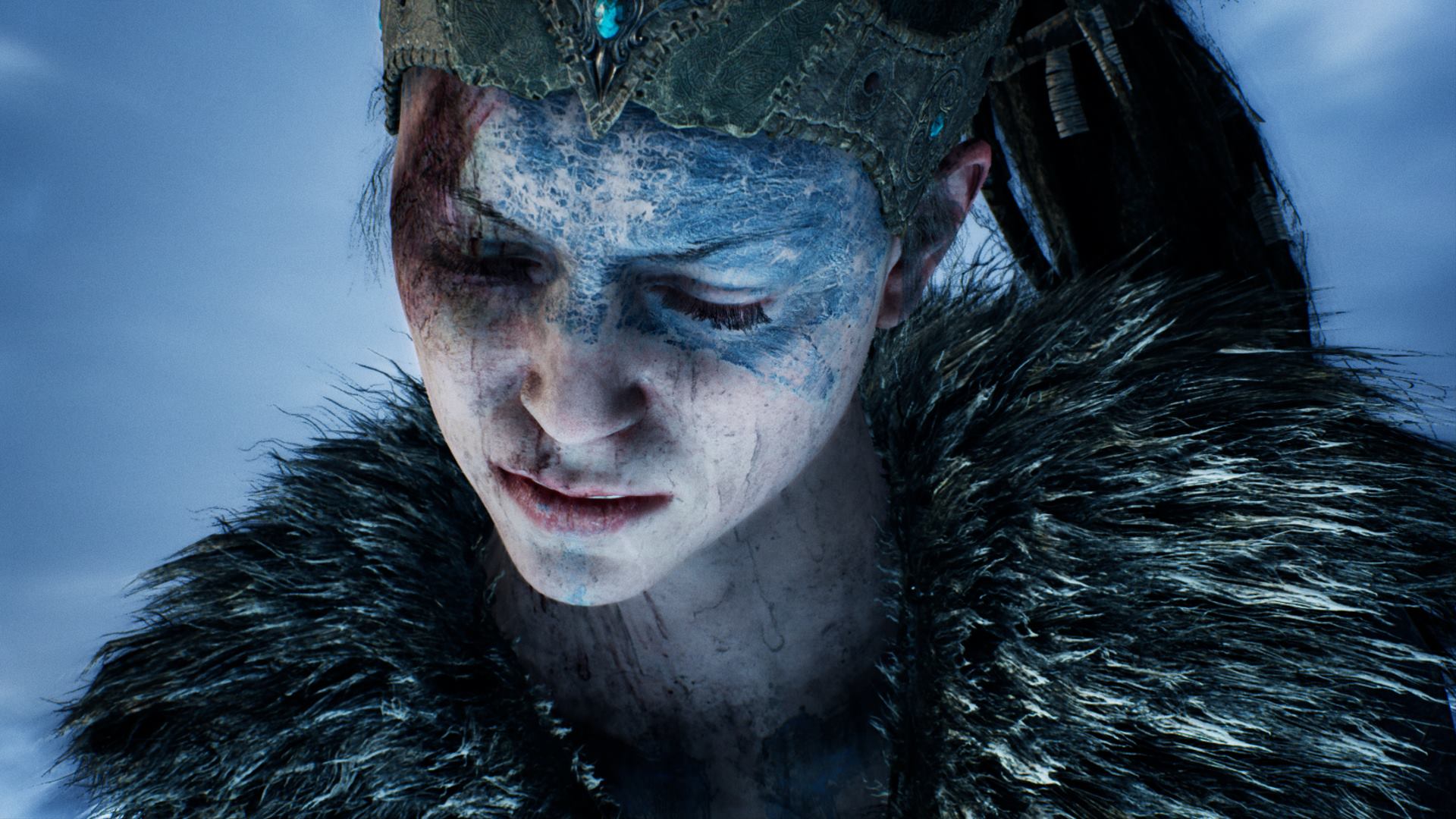
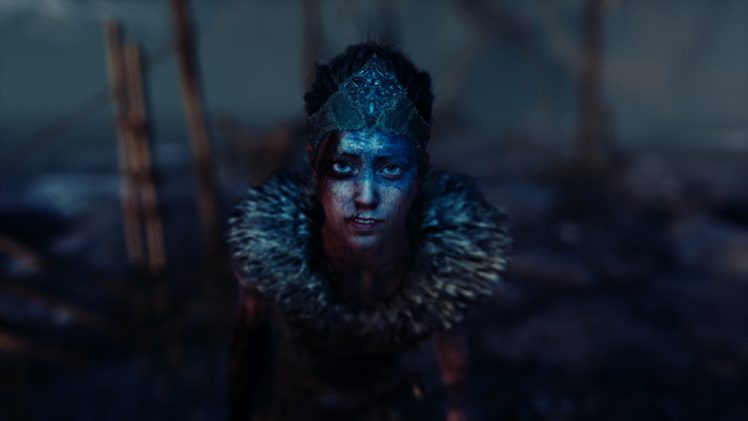
Senua is brought by life through motion capture by the amazingly nuanced and powerful acting of Melina Juergens. I absolutely love the expressiveness of her character, the extremely convincing and real eloquence of her face. She isn’t glamorized or meaninglessly idealized in any way, which I appreciate enormously. Instead of this, she looks and acts completely and perfectly like a genuine flesh-and-blood person, a person suffering horribly under the crushing burden of schizophrenia, trauma, isolation, and guilt. This is a large part of the true genius of this extraordinary game: the ability of Senua to convey her emotions and selfhood, to make us sympathize with and forge a connection with her, through her facial expressions and voice. Hellblade aims at psychological realism, which is carried out flawlessly in the embodiment of its protagonist. I felt that I could simply watch her face throughout the entire game, and it was really just watching a person react, suffer, find courage, and actually live through these harrowing experiences. The beautiful heart of the game is its human heart; dark but not rayless, and fundamentally compassionate. The essence and key to this story is the emotional participation that it demands from us.
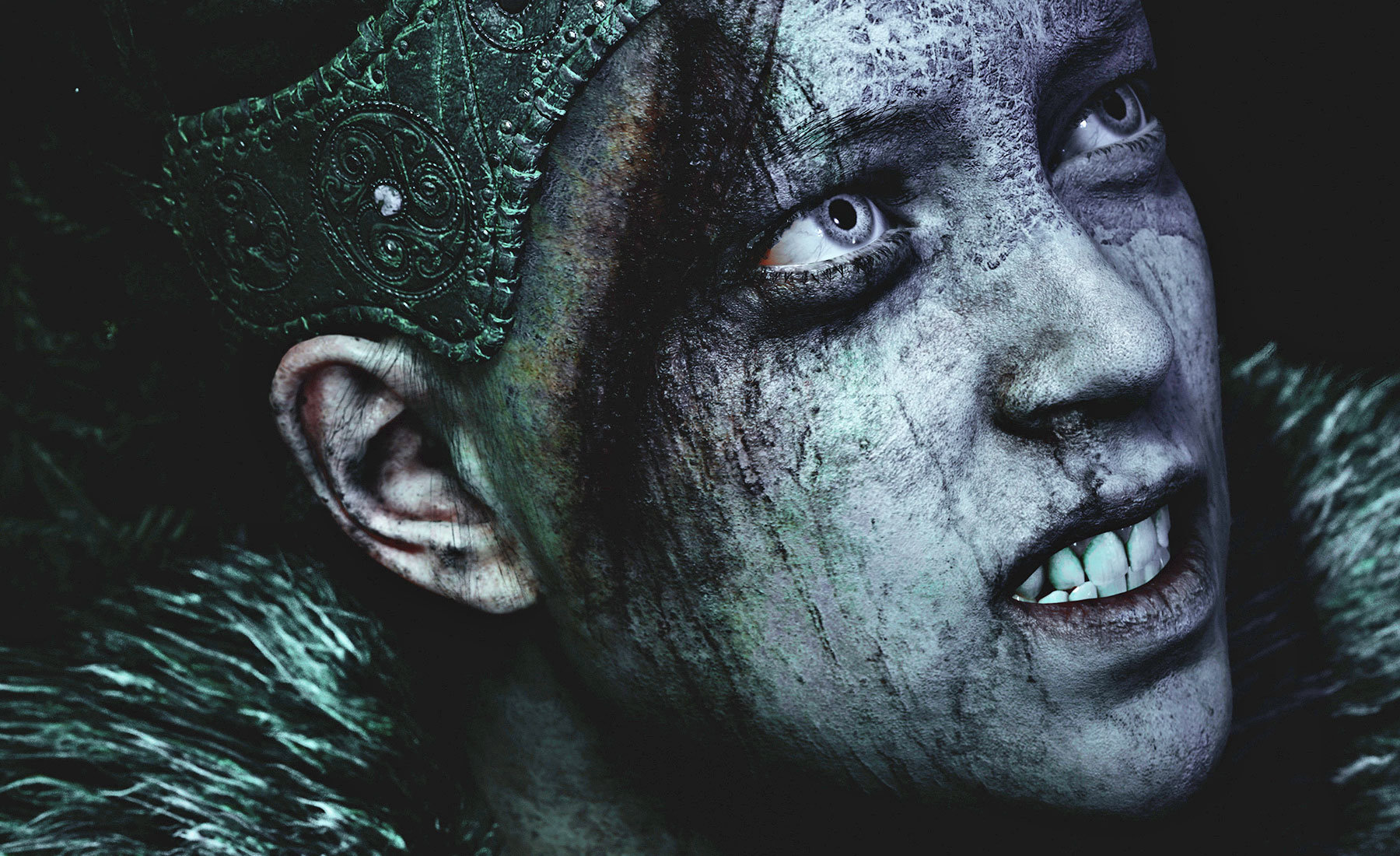
Senua’s odyssey is a metaphor for the dark paths of mental illness. She is repeatedly lost in the mazes of her own psyche, struggling to make herself cohere and integrate enough so that she can move forward. She struggles not only against the inevitable – her realization of the full ramifications of her love’s death that awaits her at the end of her journey – but also against the fracturing of her own mind, its constant subversion and treachery of her life, her own unreliability, her self-sabotage. She travels to hell, for she is truly going through the substantiation of hell on earth. The external world can offer no intenser hell than the one her mind creates and imprisons her in. Her lostness, her vulnerability, her pure loss and grief, her strength and heart-wrenching struggle make her valuable to the viewer, cause a bond to be formed and endear her to us.
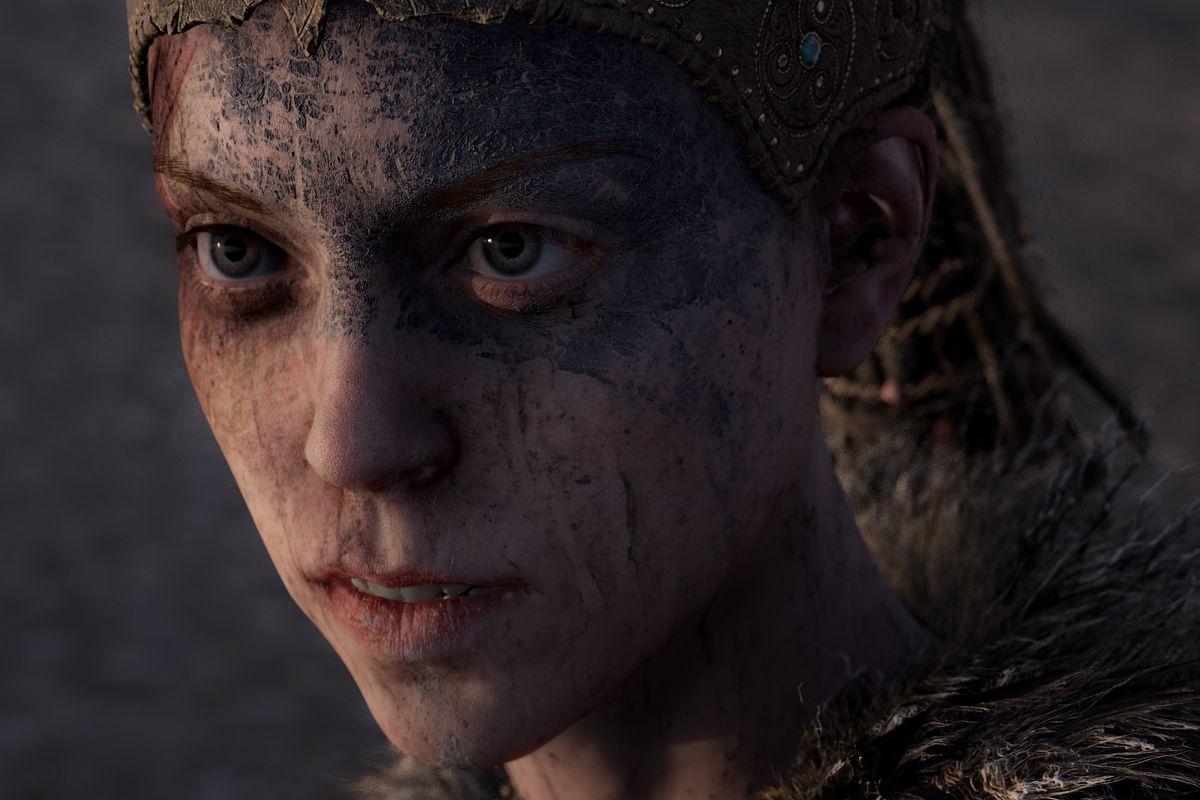
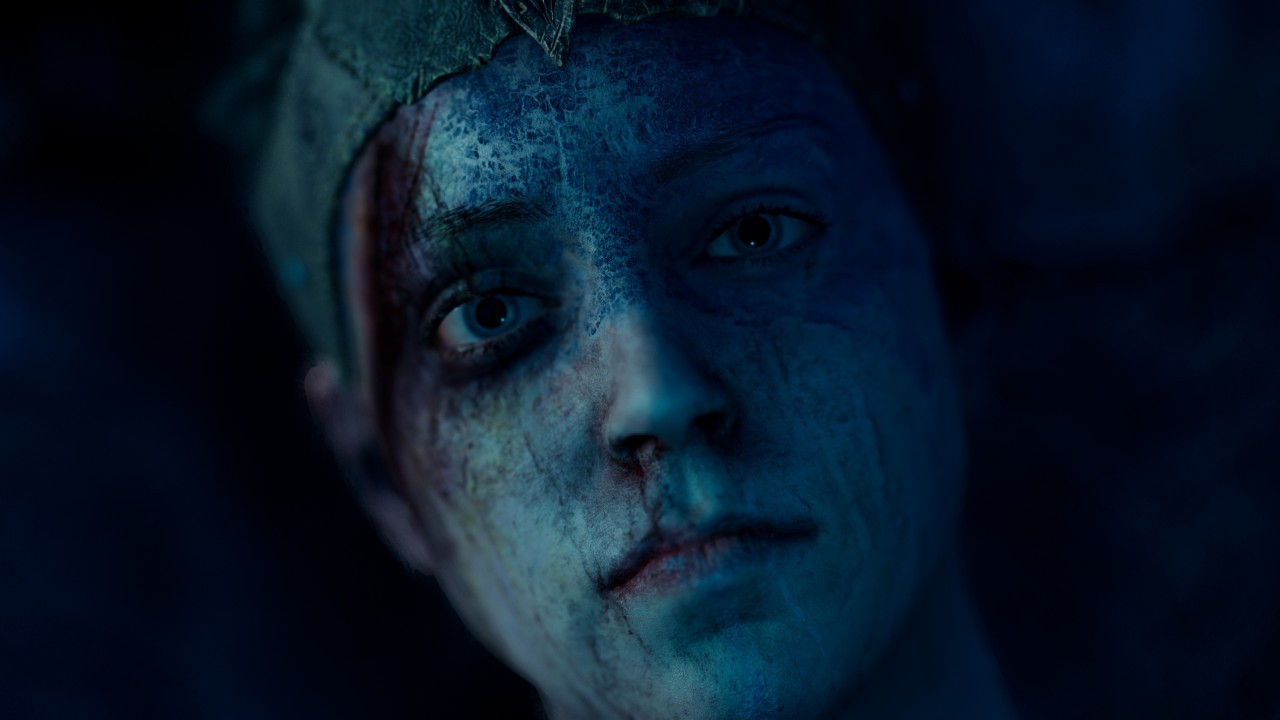
In efforts to further the realism and accuracy of the depiction of mental illness, the developers worked closely with neuroscientists and schizophrenia patients, using their knowledge and their experiences with psychosis as a basis for the hallucinations and voices in the game. They wanted to accurately portray what it’s actually like to experience delusions, the way that hallucinated voices sound, the differing distances between separate voices, the things that they tell us of. Both the visual and auditory hallucinations were based on descriptions from people who underwent these experiences. Senua’s agony and tormenting confusion are palpable in the performance of Melina Juergens, who has personally dealt with mental health issues and psychosis.
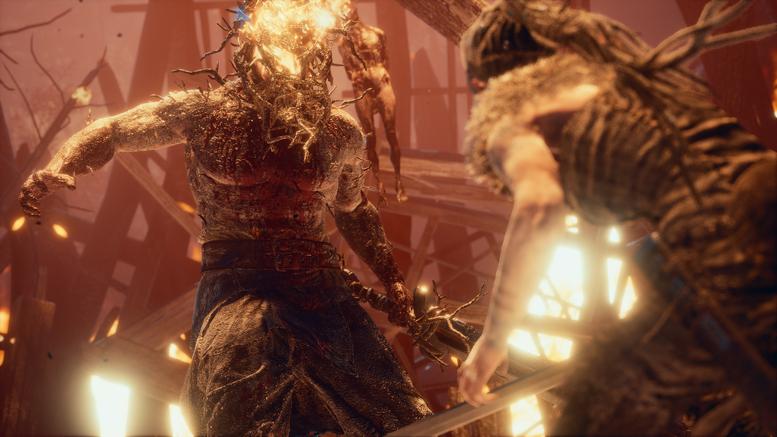
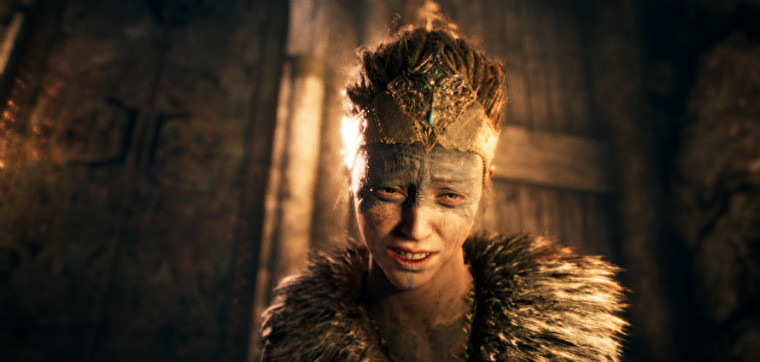
Senua’s Sacrifice is both a noble attempt and a successful vindication, exploring a new realm of gaming narrative and subject matter. No other game has quite done what it’s done. The visuals are stunning, but I do believe that even had they been a little lower-caliber, so long as the rendering of Juergens’ acting remained the same, the game would have been almost as effective. Hellblade is about the misunderstanding of mental illness, abuse, isolation, love, sacrifice, the limitless torments of the internal and external world, resilience and power. The emotional immediacy and intensity of it ensure that it is lingeringly haunting and not easily to be forgotten. Immensely personal, affecting, and deeply meaningful, it has rare significance in its medium and perhaps heralds more games of its like. Thus far it has been unparalleled in psychological exquisiteness. And never, never has a video game character been so profoundly human, anguished, and brave as Senua. Her terror and fear, her transcendent determination, her abyssal love are so real that they drown you in her.